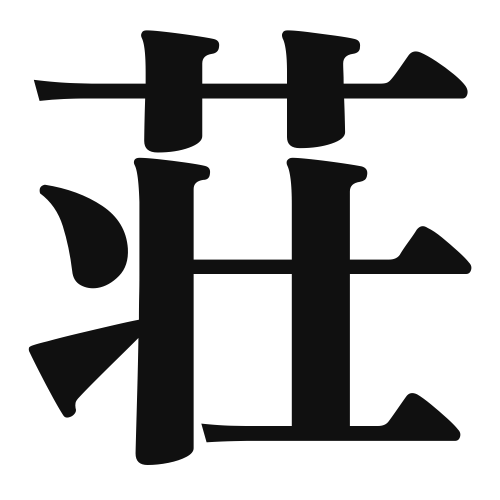1. Overview of Meaning
The kanji “荘” (sō) generally refers to a villa, mansion, or a place of residence that is elegant or luxurious. It can also imply a sense of refinement or sophistication in a living space.
2. Formation and Radical
Formation of the Kanji: The kanji “荘” is a compound character (会意文字) that combines elements to convey its meaning. It consists of the radical “艸” (grass) at the bottom, which often relates to nature or plants, and the character “庄” (zhuang), which contributes to the overall meaning of a refined dwelling.
Radical: The radical of “荘” is “艸” (grass), indicating a connection to nature, which is often found in traditional Japanese architecture and gardens.
3. Examples of Usage
Common Words and Phrases: Some frequently used words that include “荘” are “荘園” (sōen – manor) and “荘厳” (sōgon – solemnity or grandeur).
Example Sentences in Daily Conversation:
- 「彼は美しい荘に住んでいます。」(He lives in a beautiful villa.)
- 「この荘厳な建物は歴史的な価値があります。」(This grand building has historical significance.)
4. Synonyms and Antonyms
Similar Kanji: A similar kanji is “館” (kan), which also refers to a building or hall but often implies a larger or more public space, such as a museum or a hotel.
Opposite Kanji: An antonym could be “貧” (hin), which means poor or impoverished, contrasting with the luxurious connotation of “荘.”
5. Cultural and Historical Background
Connection to Japanese Culture: The concept of “荘” is deeply rooted in Japanese culture, where traditional villas often feature beautiful gardens and are designed to harmonize with nature.
Proverbs and Idioms: One relevant proverb is “荘厳な心” (sōgon na kokoro), which means to have a solemn or dignified heart, reflecting the elegance associated with the term “荘.”
